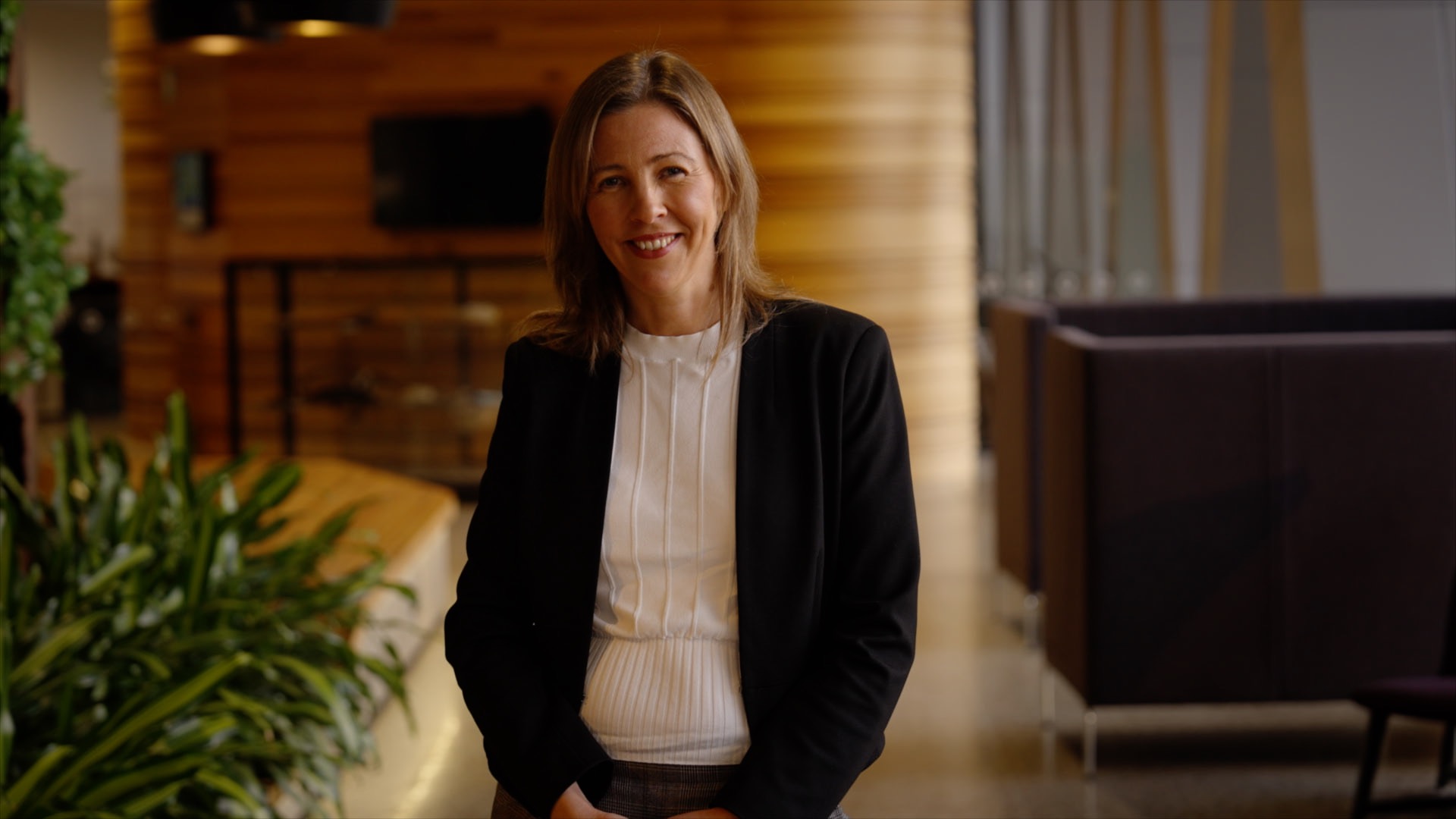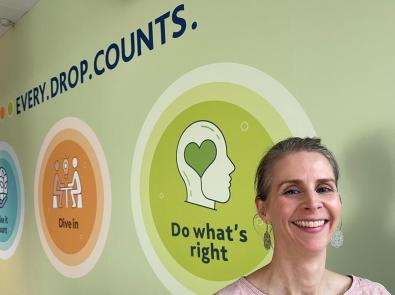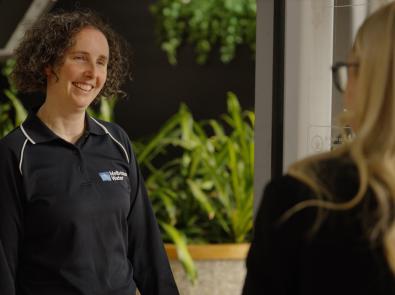
Women in engineering lead the way at Melbourne Water
For International Women in Engineering Day on Sunday, 23 June, Melbourne Water showcases three women engineers making significant contributions to their industry.

"An engineer is interested in a process and how to make it work," says Catherine Rees, a manager at Melbourne Water who works on wastewater treatment and marine research.
"The most important part of my job is to find out if our wastewater treatment creates changes in the environment and what effect this has on the treatment process."
Catherine manages a demanding job alongside a young, energetic family. Little did she know she possessed innate engineering skills when she began her career.
"I got into this line of work after my sister told me I reminded her of the engineering students at her uni who were mostly boys!" said Catherine.
"Don't be put off by the gender imbalance at university, though - once you join a workplace, you hardly notice."
According to research by Engineers Australia, women account for only 16% of engineering graduates and 13% of the Australian engineering workforce.
Catherine started as a graduate engineer and spent so much time with the researchers that she was offered a role.
"I conduct research by posing questions that testing alone can't answer. This is where it gets really creative as we read, experiment, and test our ideas," said Catherine.
Catherine's biggest project was better managing anaerobic lagoons used to treat animal waste from farms. Her team built and operated a large pilot plant on the site for two years to gain insights that now influence how Melbourne Water operates and manages these lagoons.
"My job was to scope the project, build the expert team, obtain external funding, and manage the group," she said of the successful project, which led to a significant cost saving for water treatment.
"My work has led to downward pressure on the cost of your water bill, which is satisfying to know," said Catherine.
"I've also worked on reducing the odour from our treatment plants, which I'm sure everyone would agree is a worthwhile effort."

How we handle waste in the coming decade presents a challenge for everyone, and it's a puzzle that Melbourne Water employee Lindsay Studer is working to solve.
"Getting into chemical engineering was a bit of a leap of faith," said Lindsay.
"I look at population growth forecasts, current and future environmental regulations, the drive to net zero and many other things."
"From all of this, I create a plan to ensure we have the right assets in place at the right time so we can continue to provide fresh, clean water to the people of Melbourne," she said.
As a high school student, Lindsay was good at maths and science, and this cleared the way for her to study chemical engineering, but she wasn't sure what kind of work would suit her the most.
"About ten years into my career, I reached a crossroads," she said.
"I was working as a consultant but didn't feel connected to the work because once you finish a project, you immediately move on to something else."
Lindsay joined a mentoring program offered by the Australian Water Association, which matched her up with a senior woman engineer. "I like forward planning and thinking strategically, so my mentor suggested I work for a single client who lets me look at my work in a long-term way," she said.
"Most chemical engineering jobs are in mining and energy or pharmaceuticals, but the beauty of working for a water utility is that it owns the land and assets, and you can be involved in every part of the process."
Lindsay's career highlight was receiving her chartership, which, as the gold standard of accreditation for an engineer, has led to many opportunities.
"As an early career engineer, chartership is recognition that your work is of a certain quality," said Lindsay.

Many of our engineers specialise in topics that allow them to help solve global challenges, particularly climate change, and chemical engineer Narelle Fellows is no exception.
"One of the big projects that's happening in my team at the moment, or has been going for a couple of years, has been a focus on emission measurement," said Narelle.
As a manager in sewage planning at Melbourne Water, Narelle and her team are trying to break down waste without pushing up our carbon emissions.
"Bugs work really well at treating our waste, but they emit greenhouse gases while they're doing it, which need to be measured," she said.
"However, we need to know where the emissions are coming from, which is hard in a large and diffuse source like a treatment plant, so my team have reached out to other industries like mining to find the best way of doing this."
The data gained from measuring emissions can then be used to reduce them.
"The thing that I love the most about being an engineer is collaborating with really smart, passionate people to solve problems at Melbourne Water and around the world," said Narelle.
"The most unexpected thing I've learned being an engineer for such a long time is that finding solutions is sometimes more art than science."